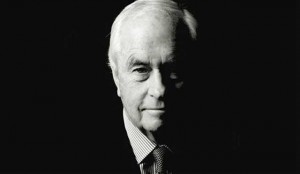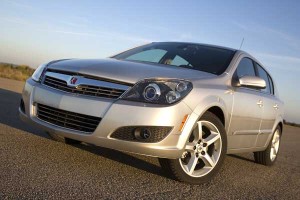
GM confirms it will sell its Saturn brand - with court approval - to Penske Automotive Group, founded by entrepreneur Roger Penske.
Confirming what TheDetroitBureau.com earlier reported, General Motors has announced that it has concluded negotiations on a proposed sale of its Saturn brand to Penske Automotive Group.
The deal must still be finalized – a matter complicated by GM’s current bankruptcy status – but if approved, the ailing automaker said, in a statement, that it would “save more than 350 dealerships and 13,000 jobs at Saturn and its retailers in the United States, and would preserve the customer-focused Saturn brand.”
“Saturn has a passionate customer base and outstanding dealer network,” said Roger Penske, racing legend, mega-entrepreneur and chairman of Penske Automotive Group. “For nearly 20 years Saturn has focused on treating the customer right. We share that philosophy, and we want to build on those strengths.”

GM will continue providing three products, the Astra (shown here), Vue and Outlook, for two years, then Penske will need find other sources to fill Saturn showrooms.
If the terms of the new Memorandum of Understanding, or MOU, hold, Penske would acquire both the Saturn brand and various assets. Meanwhile, GM has agreed to continue producing several products, including the Aura, Vue and Outlook, for an unspecified time. The company had earlier said it would phase out those products, before 2011, and a Penske representative said that two-year target still holds.
Beyond that, the new owner would need to find other options to fill Saturn showrooms, and could source products, longer-term, from various partners. The French maker, Renault, has been mentioned, and has, in years past, expressed a strong interest in returning to the U.S. market. There could be other alternatives, including Chinese manufacturers. Though there are no indications there have been discussions with Saturn, the CEO of BYD told TheDetroitBureau.com, earlier this year, that he would prefer to find an existing maker to partner with, rather than launch a U.S. distribution network on his own.
It’s almost exactly 25 years since GM’s far-reaching CEO, Roger Smith, announced plans to create what would eventually be billed as “a different kind of car company.” That set off a flurry of activity, with states across the country competing to see who could come up with the most lucrative incentive package to draw the planned Saturn factory.
It eventually landed in Spring Hill, Tennessee, along with most of the rest of what was intended to be a virtually stand-alone “company-within-a-company.” Saturn had its own design, engineering and manufacturing centers and even negotiated a separate and more flexible contract with the United Auto Workers Union.
When the first car debuted, in 1989, it received mixed, if generally favorable reviews. “People expected the car to lift off its wheels and fly,” recalled the late Skip LeFauve, who ran the operation at its launch. But it turned out that the real revolution was on the retail side, Saturn quickly earning a reputation for customer-friendly sales and service practices that won over the sort of motorists who hated the car buying process.
 Initial momentum turned south, however, as infighting among the various GM brands convinced senior management not to approve the much-needed expansion of the Saturn line-up. By the time they finally authorized a larger car, it was too late.
Initial momentum turned south, however, as infighting among the various GM brands convinced senior management not to approve the much-needed expansion of the Saturn line-up. By the time they finally authorized a larger car, it was too late.
Even a flood of highly-regarded products, over the last three years, couldn’t revive the brand’s momentum. Sales were an anemic 188,000 in 2008, a decline of nearly 22%, and volumes have continued plunging this year.
There are 380 Saturn dealers in the U.S., today. Most or all are likely to stay on with Penske, according to well-placed sources. The new owner could also look to expand ties between his own retail network, the Penske Auto Group, which is the nation’s second-largest auto retail chain.
Penske, who has revived ventures such as Hertz Truck Leasing and Detroit Diesel Corp., and has been a force to be reckoned with on the motor sports circuit, also serves as the U.S. distributor for Daimler AG’s Smart Car division, which he took on after the German maker failed to come up with a plan to sell the cars on its own in the States.
